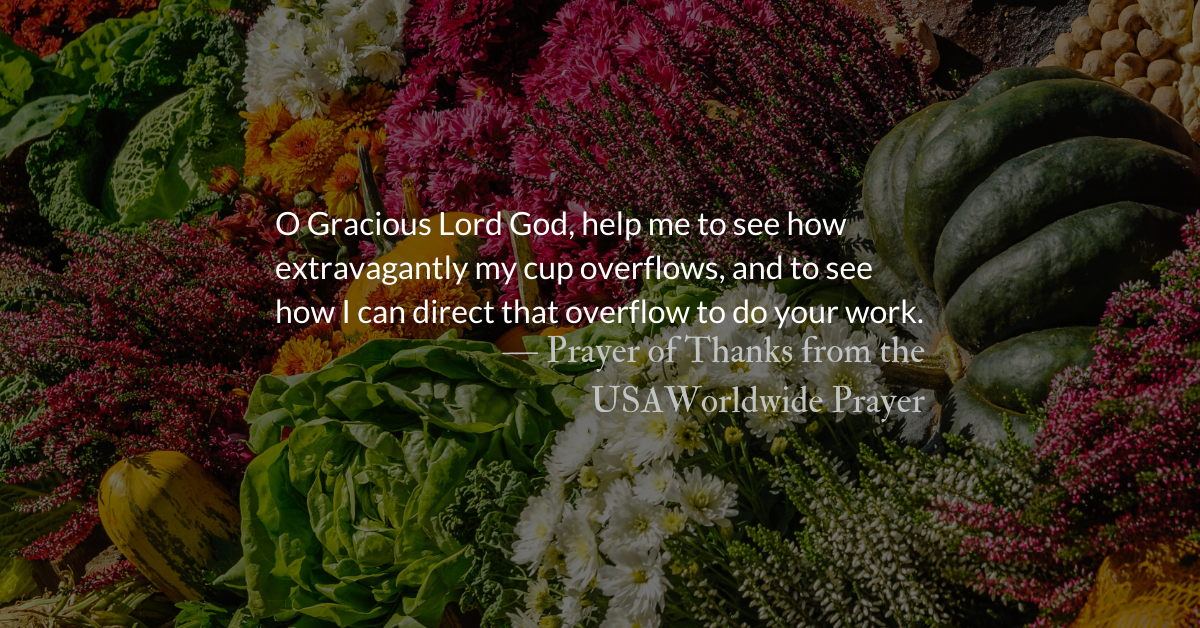Scripture Focus: Isaiah 21.3-4
3 At this my body is racked with pain,
pangs seize me, like those of a woman in labor;
I am staggered by what I hear,
I am bewildered by what I see.
4 My heart falters,
fear makes me tremble;
the twilight I longed for
has become a horror to me.
2 Peter 2.1-3
2 But there were also false prophets among the people, just as there will be false teachers among you…2 Many will follow their depraved conduct and will bring the way of truth into disrepute.
2 Peter 2.9-10
9…the Lord knows how to rescue the godly from trials and to hold the unrighteous for punishment on the day of judgment. 10 This is especially true of those who follow the corrupt desire of the flesh and despise authority.
Reflection: Sufferings and False Prophets
By John Tillman
Peter, in his time, warned of false prophets by looking back in history. We can learn from this method as well. In ancient times and today, when prophets warn of disaster, people often reject the simple, life-saving courses of action they recommend in favor of idolatry, conspiracies, and lies.
Despite Isaiah’s repeated warnings, and those of his successors Jeremiah and Ezekiel, the people of Judah and Israel remained stubbornly in denial about the coming exile and suffering.
False prophets of ancient Judah misled the people about the future, maintaining that Babylon would never conquer Jerusalem. They accused faithful prophets of being obsessed with gloom-and-doom. Some were maligned for being unpatriotic or hating their country. Some were arrested, killed, or accused of conspiracy against the king.
The false prophets of Peter’s day twisted the teachings of Christ to endorse radical individual freedom that rejected repentance, responsibility for actions, and personal morality. One of Peter’s main concerns was that the truth of the gospel would be maligned and brought into disrepute by these false teachers.
False prophets we deal with today may be religious or political in nature but what they have in common is typically telling us exactly what we want most to hear.
Like Isaiah, in a time of suffering we can set a watch, a lookout, trusting that, in the future, we will see justice done. Isaiah saw the eventual destruction of Babylon, including some of the details of the account of the fall of Babylon as experienced by Daniel. (Isaiah 21.5; Daniel 5.1-5) But rather than joy, Isaiah is physically sick and disturbed by the destruction. He had longed for the twilight of this kingdom that would take his people into exile, but when he saw the darkness fall, he was terrified and grief-stricken.
We are confident, as Peter assures, (2 Peter 2.9) that God can both save and bring justice.
Like Isaiah, may we see beyond our current sufferings to God’s future for us. May we have confidence in the justice our God will bring on false prophets and the oppressors of today and tomorrow. And when we see their suffering, may we not rejoice, but weep.
Divine Hours Prayer: A Reading
Jesus taught us, saying: “So always treat others as you like them to treat you; that is the Law and the Prophets.” — Matthew 7:12
– Divine Hours prayers from The Divine Hours: Prayers for Springtime by Phyllis Tickle
Today’s Readings
Isaiah 21 (Listen – 2:32)
2 Peter 2 (Listen – 3:52)
Read more about Slavery to Maturity
Israel gained political freedom, yet were morally and spiritually fragile and prone to deceptions by Balaams and Ba’als and idols of the desert.
Read more about Blessing and Woes :: A Guided Prayer
Luke adds the woeful warning that when we are treated well, we are like the false prophets of old.








